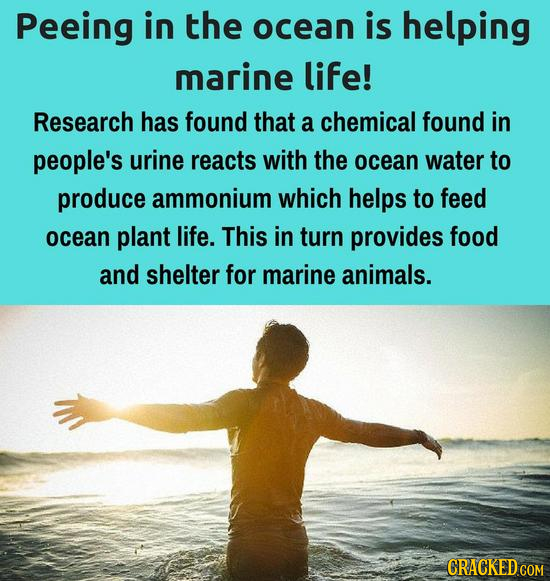20 Bizarre Ways Humans Are Permanently Changing The Planet
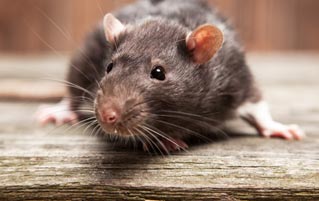
There’s no question humans have had an outsized impact on this planet. It’s pretty surprising considering we started out as weak, slow hairless apes with relatively poor sensory abilities. Ouch, it hurts us to even write it. We sound pathetic. But, here’s the good noise. We’ve managed to colonize the entire planet and emerge as the dominant apex predator among all planetary life forms. That’s not mean feat for a relatively squishy mammal that doesn’t even have claws.
We all like to think we're changing the world. The thing is, we as a species are literally doing that, every day. Human beings are changing our own planet in huge, quantifiable ways on a constant basis. For example, it turns out we’re not the only species affected by New York real estate issues and neighborhoods–the city has effectively bred genetically distinct populations of ‘uptown’ and ‘downtown’ rats, which, we’re sure has led to some passionate but doomed rodent romances,
And no, we're not just talking about trash. We're talking about things like ...
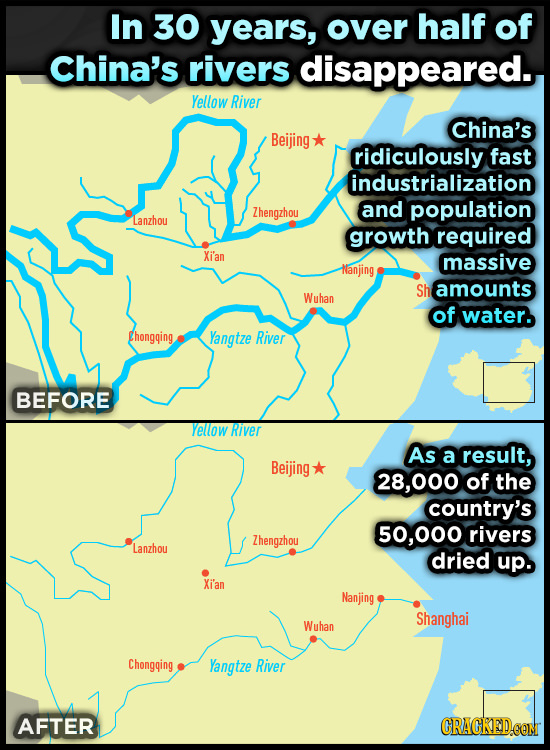

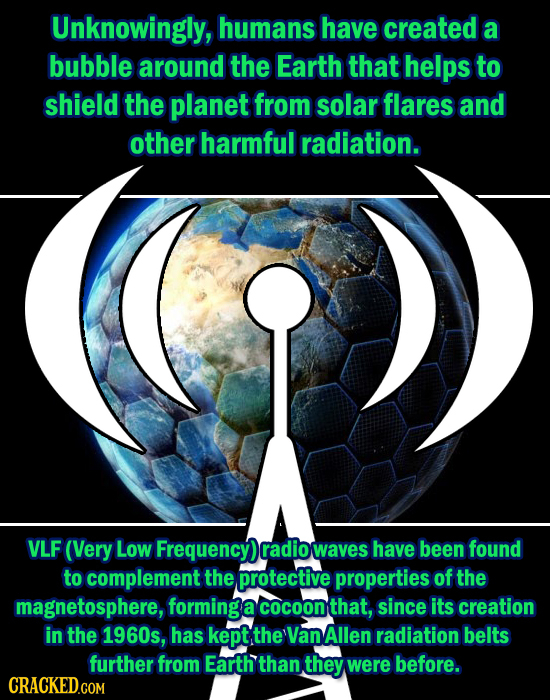
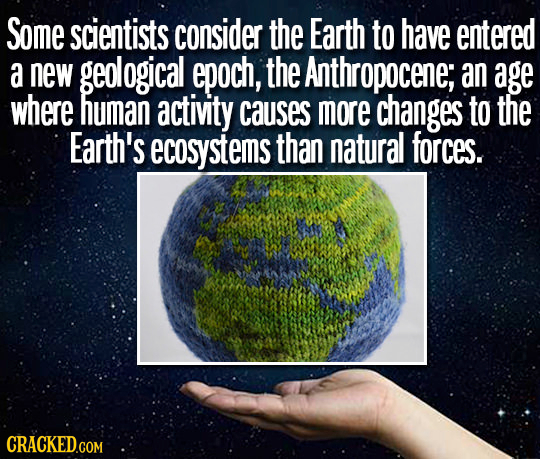
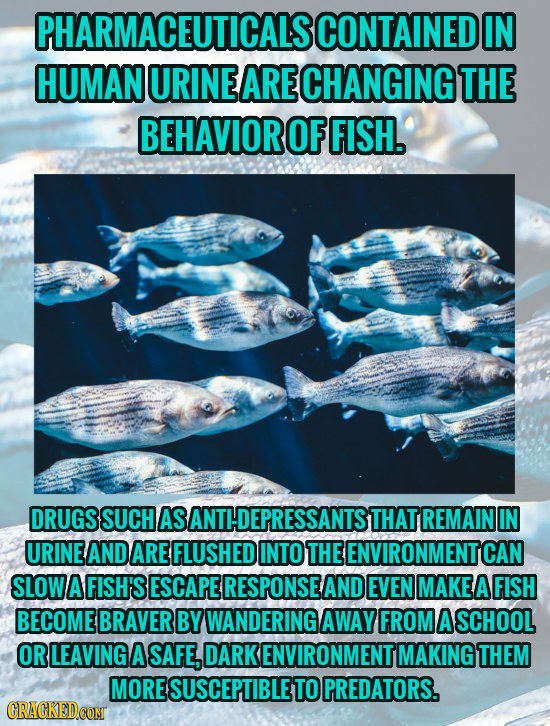
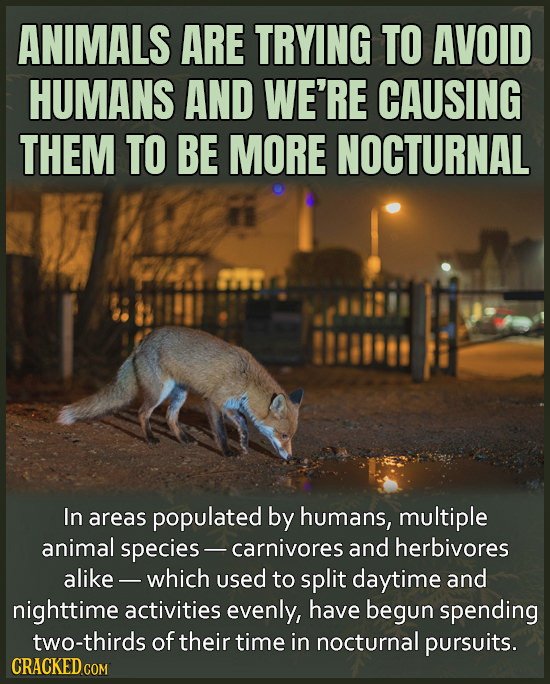
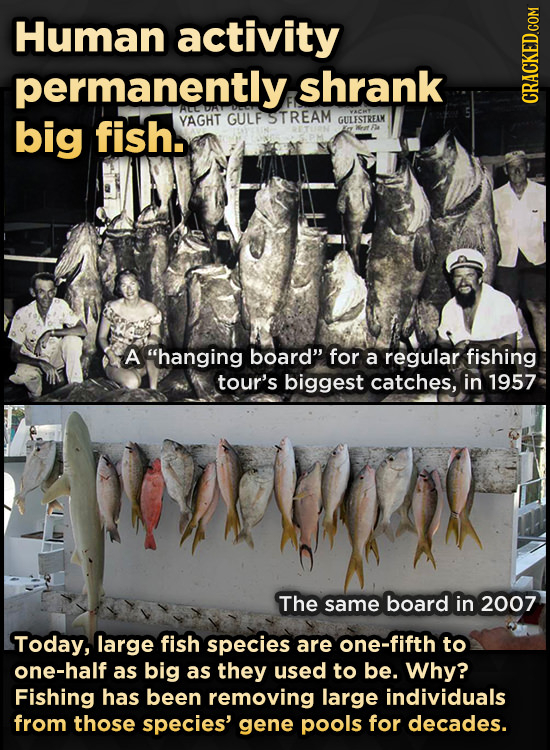
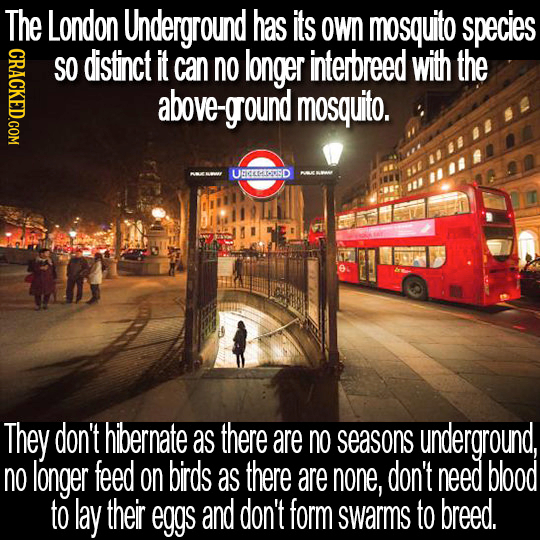
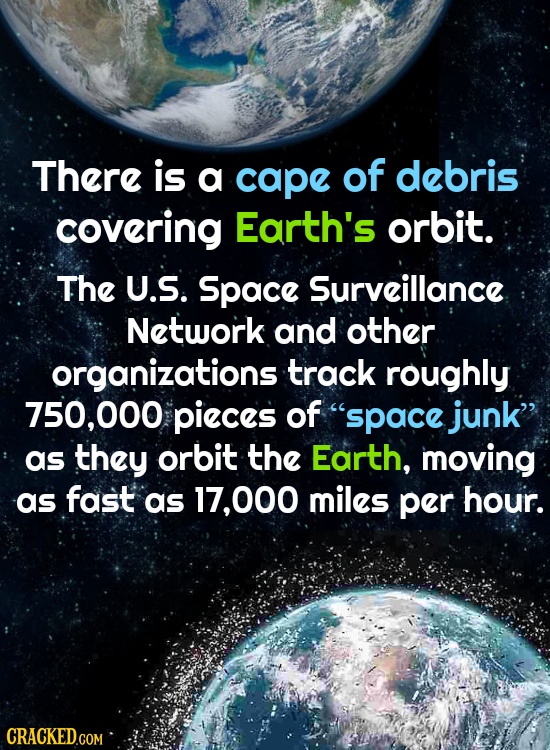

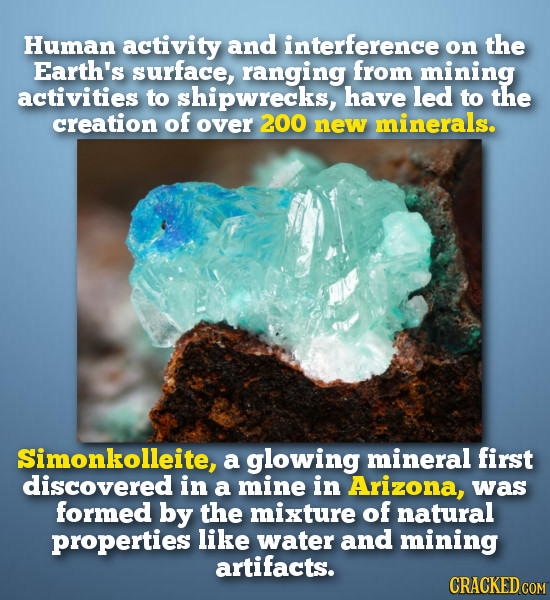
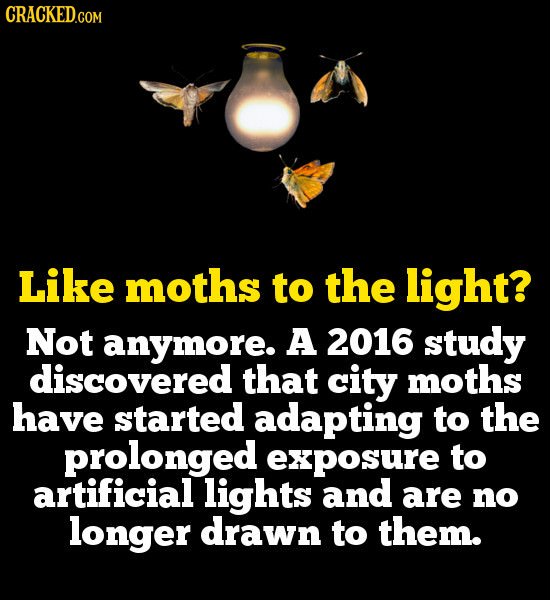
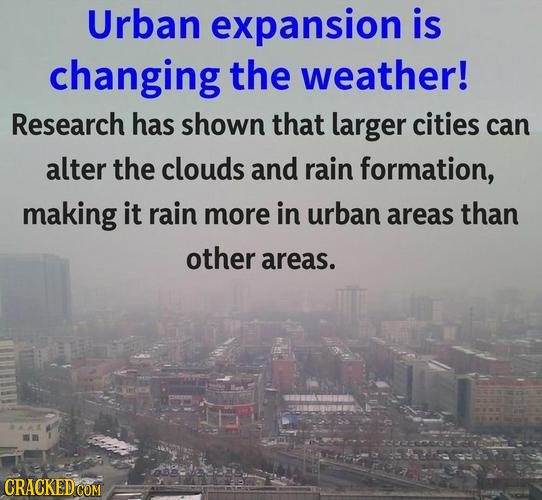
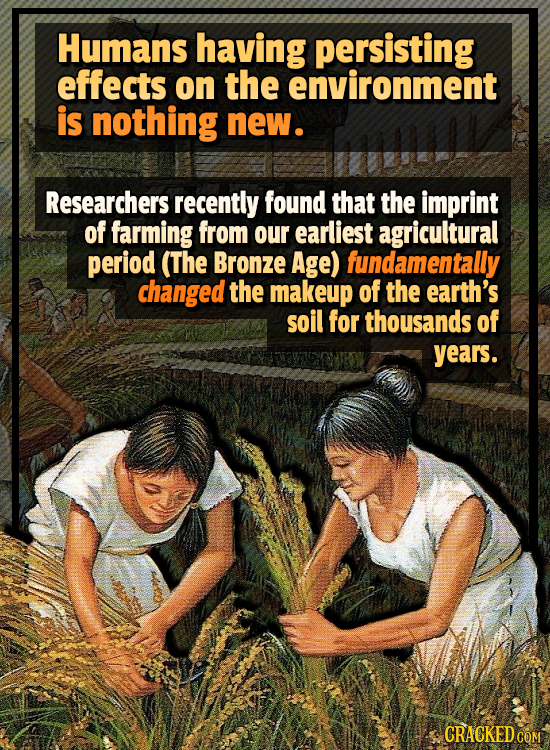
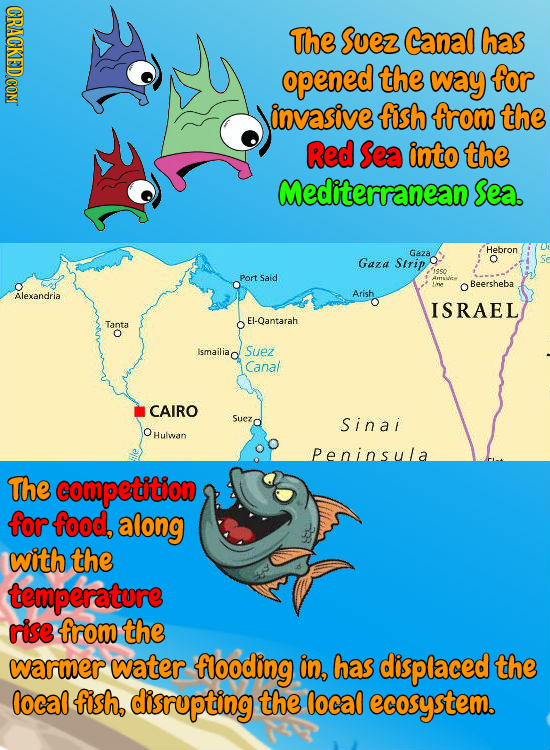
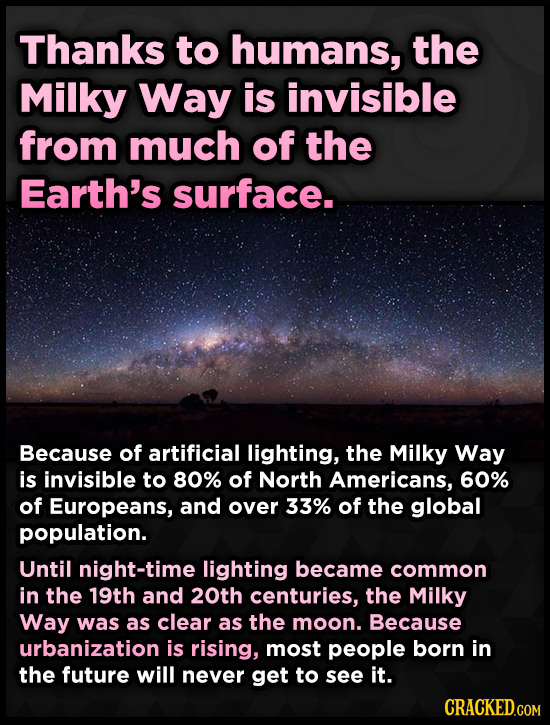
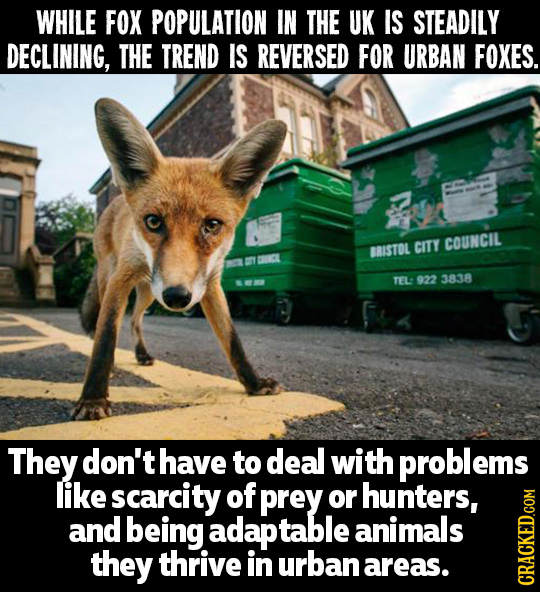
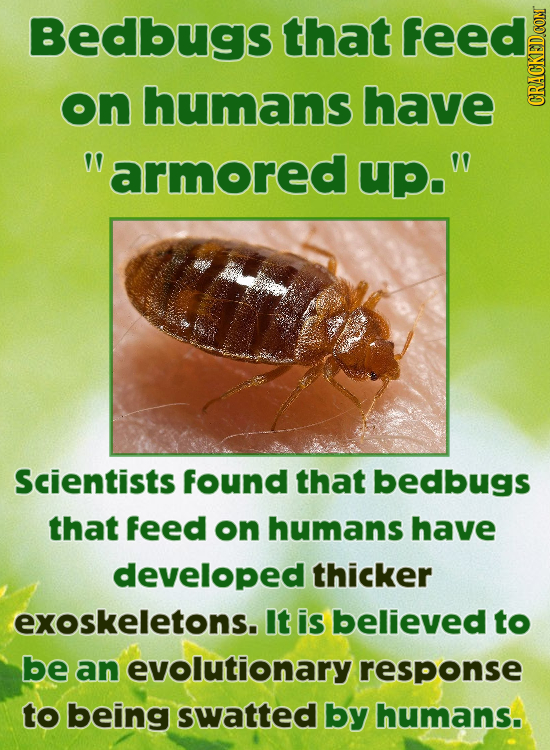
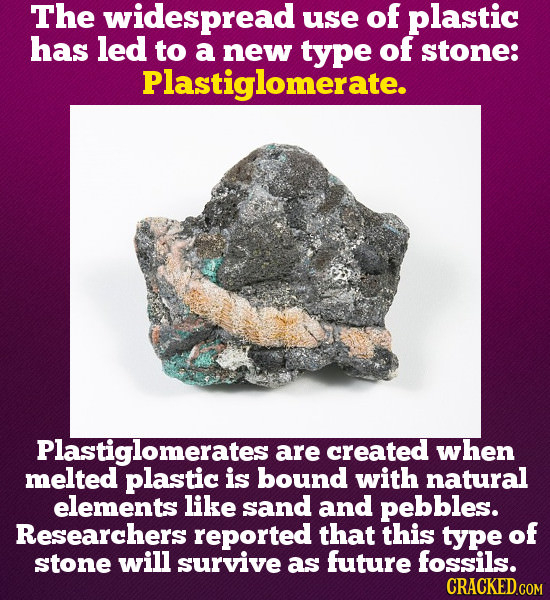
The Chemicals in Urine
